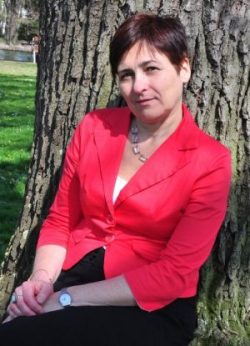Dear readers!
Last summer we resumed our magazine – after a long interval – with an extensive first issue on “Arab thought”. We will now resume regular publication with an issue that is equally extensive.
Herbert Grönemeyer sings “Home is not a place. Home is a feeling”. „Home is, what you no longer have“, says novelist Martin Walser. Is, in this case, home always a place that we have already „lost“? The German philosopher, philologist and Prussian statesman Wilhelm von Humboldt, however, has a different definition of a home country: „The true home is one’s language“.
Rootlessness, estrangement, but also feeling home again in exile is an ever recurring subject among immigrants.
The main subject of Minbar’s 11th issue is life of Muslims in the diaspora. The problems of integration are examined from three different perspectives. Gari Pavkovic is commissioner for integration of the city of Stuttgart and member of DIK. For many years he was engaged in the Committee for Foreign Affairs of Stuttgart in humanitarian projects during the wars in Bosnia and Herzegovina. Dr. Hamid Fadlalla is a physician and managing director of the Organisation for Human Rights in the Arab World, German headquarter (OMRAS/D). Ghassan Ibrahim is editor-in-chief of the London based weekly al-Arab al-Usbu’i.
A couple of the articles of this issue deal with another main subject: the necessity of philosophy, independence of thought and pluralism in Modern time.
On the occasion of awarding the 12th Ibn Rushd Prize to the internet platform al-Hewar al-Mutamaddin in 2010 we publish an homage to pluralism and open dialogue: in his contemplative, literary essay Dr. Khaled Hroub (Direktor des Cambridge Arab Media Project) describes the interrelation between Ibn Rushd, Martin Luther and Modern dialogue.
Subhi Ghandour’s short contribution, „The Trio: Democracy, Liberation and Identity“is an homage to pluralism and democracy as well.
An essay by the Syrian professor of philosophy, Dr. Ahmad Barqawi, deals with Ibn Rushd’s (Averoes’) understanding of jurisprudence as philosopher. Barqawi regrets that the hostile struggle between representatives of philosophy and Islamic jurisprudence still continues today, although Ibn Rushd has shown us that there is no conflict between the two.
According to Dr. Zouhair al-Khouildi there is an „international right to philosophize“. It is even everybody’s „duty“ to philosophize against all obstacles. People should free themselves from the influences of „popular views“ and political and religious powers. Philosophy should become a „popular sport“, and al-Khouildi wants to show how this can be without becoming superficial.
As a tribute to Prof. Nasr Hamid Abu Zaid (who died on the 5th July 2010) we publish one of his last essays on „The Issue of Reason and Revelation“. We also include a dedication and tribute to him by a researcher Mohamed Amine Souidi from Algier.
A short article by Abdallah Tourkmani on the problem of NGOs in the Arab world is followed by the last essay of this issue on “Death in Arab Culture”, in which the Egyptian philosopher Hazem Khairy devotes himself to the problem (or perhaps non-problem) of death from an philosophic point of view.
We end our winter issue according to our tradition with a literary subject, in accordance with our main subject, with the short story “The Foreigner” by Dr. Hamid Fadlalla.
We wish you good reading!
20th December 2010
Dr. Abier Bushnaq
Editor-in-Chief




